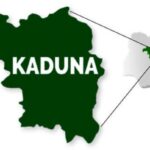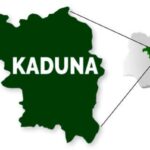Kaduna state government has disclosed plans to employ over 7, 000 secondary school teachers across the state to address the present teacher, student ratio that is hindering the development of the education sector.
The state Commissioner of Education, Science and Technology, Ja’afaru Ibrahim Sani, disclosed this on Wednesday at an evidence-based workshop on the second phase of the Educating Nigerian Girls In New Enterprise, (ENGINE II) programme organized by Mercy Corps and Kindling Hope Across Nations (KHAN) in Kaduna.
Represented by the Permanent Secretary in the ministry, Mrs. Kande Nana Bage, at the event tagged ‘Removing Barriers to Girls’ Education’; the commissioner noted that the state government is making frantic efforts to ensure students receive quality education across the state.
He further highlighted that the government in its bid to provide quality education for students especially girls, has granted 12 years free education for girls adding that Kaduna is beginning to see the result of the free education through the increase in student enrolment especially girls.
“Information reaching the ministry is that, private schools are closing down because parents are withdrawing their children to public schools. Our primary school teachers are being trained on teaching methodology and our head teachers are being trained on leadership and this will be extended to our secondary school.
“Government has created a conducive working environment for our partners to support in making education attractive with programmes like EDUMARSHAL to take our children of school age from the street back to school and the 2nd edition for our married/drop-out adolescent girls of which Engine 2 is part of.”
He urged all stakeholders to contribute their quota and support the government by eliminating the barriers saying, “Government alone cannot handle the issues of education single-handedly”.
Also speaking, the Executive Director, KHAN Initiative, Mr. Kizito Andah, said the initiative is basically to empower no fewer than 4,750 marginalized In-School and Out of School Girls in the state through the ENGINE II programme funded by the UK Department For International Development Fund (DFID).
Highlighting some challenges facing the programme, he said, “Lack of learning materials and teaching aids, poverty, economic activities, poor appreciation of the value of education by parents and girls and poor teaching skills of teacher,” among others.
He added that the programme will enable all girls whose schooling had been altered to build their functional literacy and numeracy skills, while building assets and diversifying their income sources.

 Join Daily Trust WhatsApp Community For Quick Access To News and Happenings Around You.
Join Daily Trust WhatsApp Community For Quick Access To News and Happenings Around You.


